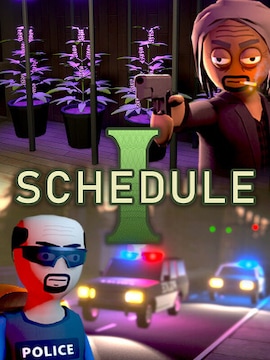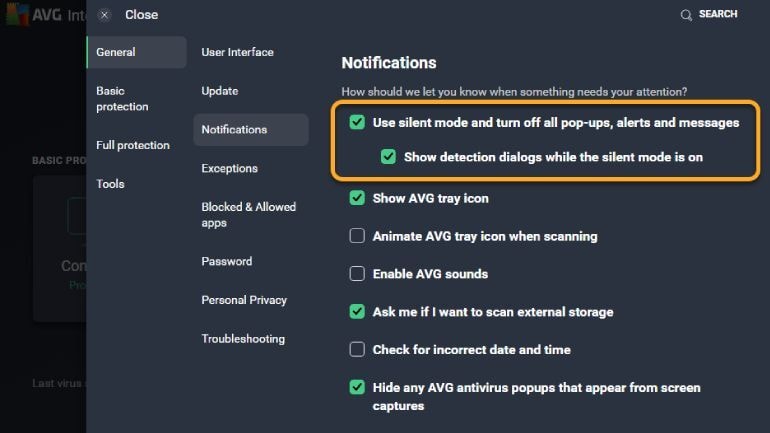The best antivirus protection is always a responsible user who possesses proper knowledge and avoids taking unnecessary risks online. However, we are all just human, and so we make mistakes – antivirus software is here to protect and watch over your system at all times.
But what if you’re a gamer? Does antivirus software have a negative impact on the system’s performance during gaming sessions? What should gamers be aware of when choosing antivirus software? Is antivirus software still relevant these days? Let’s find out.
The Importance of Antivirus Software
The online environment is full of dangers – falling prey to hackers is actually quite easy, as their methods evolve and get better and more sophisticated over time. They constantly come up with new and creative ways how to get unauthorized access to other systems without raising suspicions, and even more advanced users may sometimes fall into a trap.
There are situations when the system could stay infected for months or even years and the owner won’t have the slightest idea that there is some malicious code installed already. As long as the code doesn’t do anything harmful, but just sits there, hidden somewhere in the corner of your hard drive, it may prove to be really difficult to detect it.
But it’s there, collecting your private data, your credentials, confidential information, your passwords, banking details, and job documents, waiting for the perfect opportunity to send it all back to the hacker, who may then attempt to empty your bank account, use your private conversations for blackmailing, steal your identity, or even extort money from your friends and family members by reaching out to them through your social media accounts.
Or maybe it will simply lock your hard drive, threatening you that it will erase everything if you don’t pay a ransom within the next 24 hours.
Or maybe it will turn your system into a part of a large botnet that can be used by a hacker to launch the so-called DDOS attacks on targeted servers – a type of attack, where the target gets bombarded with requests by all of the botnet computers simultaneously, overloading the server and causing annoying access issues for all other people.
Viruses can be used to perform a variety of tasks, so it’s better to be safe than sorry when it comes to online security, as you never know – and you certainly don’t want to find out either – what nasty surprises the hackers have in the store for you.
One of the surest ways to secure the system and protect it from harmful code is to use one of the modern antivirus solutions that can monitor the system at all times.
However, it naturally raises some questions: do you really need antivirus software and does it affect the system’s performance? The answer to these questions may be especially important for gamers, who’d like to squeeze every bit of power out of their machines to make games run as smoothly as possible.
Do You Need Antivirus?
Modern systems come with quite reliable defenses by default, which can already provide more than enough protection for certain groups of users. However, relying solely on built-in defense mechanisms is not recommended for inexperienced individuals. Those who are not aware of online dangers may perform risky actions without even realizing it. Downloading files from untrusted sources, clicking seemingly safe links, opening attachments in suspicious e-mails – falling victim to hackers is surprisingly easy if you’re not careful. Antivirus software will warn you about any potential threats and will act accordingly if you let anything slip by.
With that being said, AV could also be used by more experienced users as well. Although such people take much less risk by default and so they’re exposed to dangerous situations less often, they too may occasionally get deceived by malicious users and their schemes, especially if this involves the use of some kind of social engineering. We’re all just human beings and mistakes happen to the best of us. Antivirus software ensures that such mistakes won’t cause you any real trouble.
Does AV Software Affect PC Performance?
The answer to that question is not a simple one, as there are a variety of factors to consider. Generally speaking, modern antiviruses usually don’t affect the performance too much, unless there’s some configuration issue that slows down the PC. The most computing power is required whenever you want to perform a full and thorough system scanning – this operation will stress the PC the most, but it’s usually recommended to leave the PC alone for the duration of the scanning anyway.
When antivirus software runs in the background, most of the time it doesn’t really do that much. It doesn’t continuously scan the entire system in search of dangers. Instead, it simply stays in a vigilant, real-time protection mode, analyzing your actions and making sure that you’re not letting any viruses in. For example, if you try to open a file or install a new app, AV will scan it and prevent execution if it’s considered potentially harmful.
The most noticeable performance hit can be experienced on older low-end systems. It still most likely won’t be enough to make the gaming experience laggy or uncomfortable by itself, but there may be more of the occasional FPS drops than usual, especially in the more demanding video games during the scenes where there’s a lot of action and special effects going on.
With that being said, generally, you shouldn’t be concerned about the loss of performance with AV running in the background – more often than not the difference will be so small that you won’t be able to tell the difference.
Additional Information
Although antivirus software usually doesn’t affect the system’s performance on a noticeable level, there are other factors to consider before you decide to get one yourself.
We can all agree that gaming requires constant focus. And what else would be worse to happen in the middle of a boss fight than a random antivirus popup notification coming your way and throwing that focus out of the window? Antivirus will work in the background and whenever there’s an update or a new threat blocked, you will get a notification, and that may lead to breaking the immersion.
Thankfully, most of the modern AV solutions come with a silent mode, disguised under one name or another. All it does is it turns off all the notifications for as long as you’re in the game – a simple but elegant way of solving that issue. If you want an antivirus for gamers, it should definitely come with this kind of feature.
source: AVG, antivirus interface https://static.avg.com/
One more thing to remember is false positives. There is a very small chance that the AV software will flag completely safe files as threats. This may lead to issues, such as problems with updating some video game clients to their newest versions. Unfortunately, there’s no way around this, so you must decide for yourself if having AV and protecting your system is worth it. Spoiler alert: it usually is.
Conclusion
Unless you want to perform a full system scan, antivirus software does not need too much computing power to run efficiently and protect the system in real-time, so performance should not be the decisive factor when deciding between using AV or not.
AV software is recommended for everyone, regardless of their experience and technical knowledge. While inexperienced users will undoubtedly benefit from AV’s protection the most, as they tend to unconsciously take a lot more risk when using the PC and interacting with online content, the more experienced users may still occasionally fall into a trap if there’s no AV to warn them.





